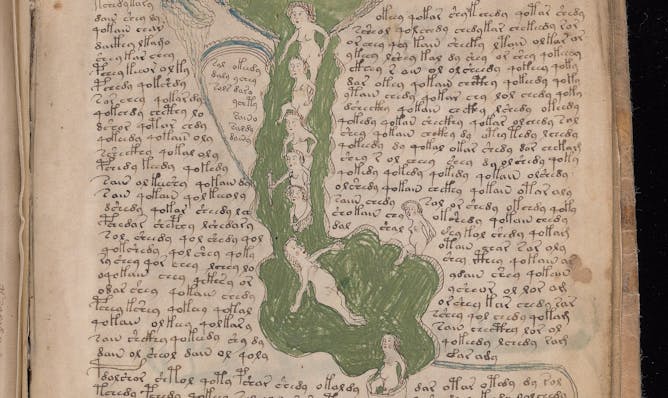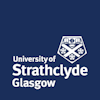|
|
|
Editor's note
|
|
The Voynich Manuscript is perhaps the world’s most mysterious book. Filled with a couple of hundred pages of text in an indecipherable language reminiscent of Tolkien’s Elvish, to this day the manuscript has the world’s best codebreakers stumped.
Some academics, though, aren’t convinced that there’s even a code to crack. While there isn’t yet a way to tell whether the book is a code or a hoax, one thing experts agree on is that it’s not an unidentified language. That doesn’t seem to stop a media frenzy breaking out every time someone suggests that it is.
The Voynich saga is just one example of a growing unhealthy appetite for stories trying to show pseudoscientific theories trumping “baffled academics”. Gordon Rugg says that an increasing “us and them” divide between experts and the public is to blame – and the fix isn’t simple.
Doctors are increasingly preferring antidepressants over lithium as treatment for depressive episodes in people with bipolar disorder in the UK. Not because they’re more effective – in fact, the opposite is true – but because of successful promotion by drug companies. And as lithium also requires regular monitoring to ward off potential side effects, it is seen as less convenient for busy doctors. Daniel Smith suggests that psychiatrists start prioritising care over companies, which means prescribing lithium alongside a more therapeutic approach.
Facebook’s proposed libra currency has been all over the news of late – most of it focused on its status as a cryptocurrency, or the company’s plan to bring banking facilities to the billions who don’t have them. But its arrival next year has truly staggering potential that goes far beyond what’s been reported so far: it could well be the beginning of the end for state control of money. If so, world currencies could be destabilised and the
interest rates set by central banks will soon be a thing of the past.
|
Jordan Raine
Assistant Editor, Environment + Energy
|

|
|
Top stories
|

Beinecke Rare Book & Manuscript Library
Gordon Rugg, Keele University
The Voynich Manuscript has researchers, the media, and the public hooked. But pseudo-explanations for the book's 'code' reveals a serious problem with society's relationship with science.
|

Shutterstock
Daniel Smith, University of Glasgow
Treatment needs to focus on fewer antidepressants, more lithium and supportive group education.
|

The fruit of your coins.
1599686sv
Gavin Brown, Manchester Metropolitan University
Why the coming generation of cryptocurrencies could force us to rethink the entire monetary system.
|
Politics + Society
|
-
Gareth Evans, Staffordshire University
Scotland is eyeing another independence referendum and now Wales wants in on the act. England feels left behind and Northern Ireland is at the centre of the Brexit impasse. Things aren't fine.
-
Scott Lucas, University of Birmingham
Donald Trump stepped back from launching US airstrikes inside Iran, but the conflict is unabated and there appears to be no way out of confrontation for now.
-
Willy Dunbar, Université Libre de Bruxelles; Yves Coppieters, Université Libre de Bruxelles
Despite many public health interventions in the region, Haiti remains vulnerable to stigmatisation against people infected with HIV, particularly sexual minorities.
|
|
Science + Technology
|
-
Colin McInnes, University of Glasgow; Malcolm McRobb, University of Glasgow; Zhongxu Hu, University of Glasgow
Scientists are hoping to turn tiny spacecraft into starships by coupling them with large solar sails.
-
Reem Talhouk, Newcastle University; Andy Garbett, Newcastle University; Kyle Montague, Newcastle University
Syrian refugees in Lebanon know how best to manage their resources, but food aid currently prevents them.
|
|
Environment + Energy
|
-
Graham Smith, University of Westminster
Citizens' assemblies could be vital in kick-starting the tough steps needed to safeguard a healthy world – but the detail for how they will work will be important.
-
Tom Matthews, Loughborough University
A climate scientist goes to work – at 8,500 metres.
|
|
Health + Medicine
|
-
Andrew Moore, University of Oxford
Not a single trial has investigated the best painkillers to use for children with cancer.
|
|
Business + Economy
|
-
Cristian Gherhes, University of Sheffield; Chay Brooks, University of Sheffield; Tim Vorley, University of Sheffield
The experience of former industrial heartlands offers lessons in how to revitalise communities when big industries close.
|
|
Cities
|
-
Kim McKee, University of Stirling; Emma Bimpson, University of Sheffield; Tom Simcock, Edge Hill University
Not all landlords see their properties purely as investments. As welfare reforms take hold, some are starting to take greater responsibility for the well-being of their tenants.
|
|
| |
Featured events
|

|
Windsor Building Auditorium, Egham, Surrey, TW20 0EX, United Kingdom of Great Britain and Northern Ireland — Royal Holloway
|

|
University of Portsmouth, Portsmouth, Hampshire, PO1 3DE, United Kingdom of Great Britain and Northern Ireland — University of Portsmouth
|

|
99 George St , Glasgow, Glasgow City, G11RD, United Kingdom of Great Britain and Northern Ireland — University of Strathclyde
|

|
King's Manor, York, York, YO1 7EP, United Kingdom of Great Britain and Northern Ireland — University of York
|
|
|
|
| |
| |
| |
| |
| |
|
|
|
|
|
|
|